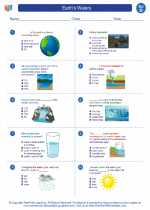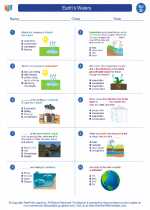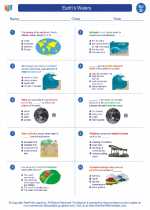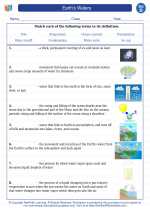Devonian Period
The Devonian Period was a geological period that occurred from 419.2 million years ago to 358.9 million years ago. It is often referred to as the "Age of Fishes" due to the diversification of fish species during this time.
Geography and Climate
During the Devonian Period, Earth's landmasses were concentrated in the supercontinent of Gondwana in the southern hemisphere, and a smaller continent called Laurussia in the northern hemisphere. The climate was warm and relatively stable, leading to the widespread expansion of forests and the development of complex terrestrial ecosystems.
Life Forms
The Devonian Period saw a significant diversification of life forms. Fishes, including jawed and jawless varieties, became more diverse and abundant. The first amphibians also evolved during this time, marking an important transition from aquatic to terrestrial life. Plants continued to evolve, with the first forests of tree-sized plants appearing during this period. Invertebrates such as trilobites and ammonites also thrived in marine environments.
Mass Extinction
Towards the end of the Devonian Period, a series of extinction events occurred, known as the Late Devonian extinction. This event significantly impacted marine life, particularly the reef-building organisms. It is believed that climate change, possibly linked to glaciation, and other environmental factors were responsible for this mass extinction.
Study Guide
- What is the Devonian Period known as?
- Where were Earth's landmasses concentrated during the Devonian Period?
- What were the climate and environmental conditions like during the Devonian Period?
- Which group of organisms saw a significant diversification during the Devonian Period?
- What event marked the end of the Devonian Period and what are some possible causes?
[Devonian] Related Worksheets and Study Guides:
.◂Science Worksheets and Study Guides Fourth Grade. Earth's Waters

 Worksheet/Answer key
Worksheet/Answer key
 Worksheet/Answer key
Worksheet/Answer key
 Worksheet/Answer key
Worksheet/Answer key
 Vocabulary/Answer key
Vocabulary/Answer key
 Vocabulary/Answer key
Vocabulary/Answer key
